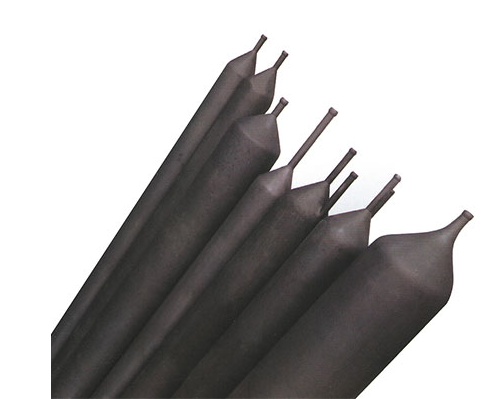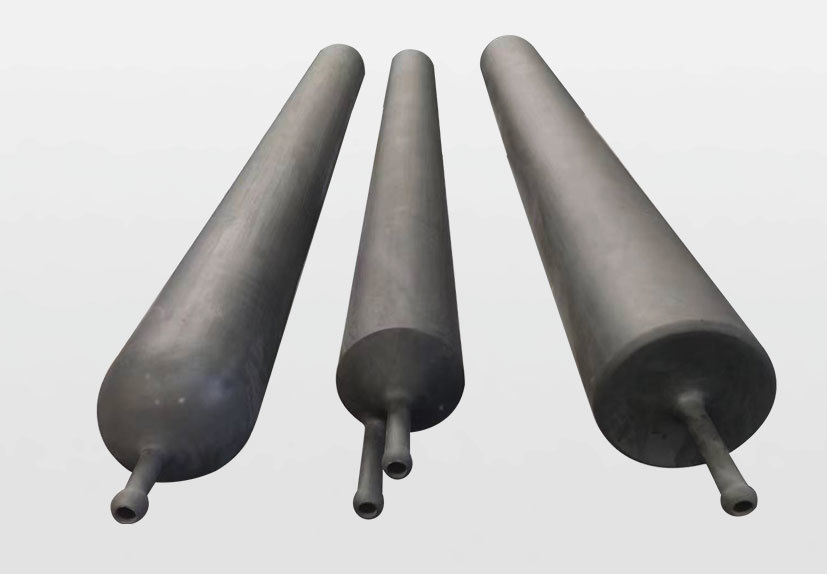SiC Process Tubes, crafted from silicon carbide, serve as indispensable components in industries demanding exceptional material performance. Their unique properties, including high thermal conductivity, resistance to chemical corrosion, and mechanical durability, make them ideal for extreme environments. These tubes withstand temperatures exceeding 1400°C without compromising strength, ensuring reliability in critical applications. Industries such as semiconductor manufacturing, chemical processing, and energy systems benefit significantly from their efficiency and longevity. The growing demand for advanced materials highlights the pivotal role of SiC Process Tubes in modern industrial advancements.

Key Takeaways
- SiC Process Tubes are made from silicon carbide, offering exceptional thermal conductivity and mechanical strength, making them ideal for extreme industrial environments.
- These tubes can withstand temperatures exceeding 2000°C, ensuring reliability in high-temperature applications like semiconductor manufacturing and chemical processing.
- Their remarkable chemical resistance allows SiC Process Tubes to perform effectively in corrosive environments, reducing the risk of degradation and contamination.
- Industries benefit from the durability of SiC Process Tubes, which minimizes maintenance costs and downtime, leading to increased operational efficiency.
- By optimizing energy transfer, SiC Process Tubes contribute to reduced energy consumption, supporting sustainable practices in energy-intensive industries.
- The longevity of SiC Process Tubes translates to a lower total cost of ownership, making them a cost-effective choice for various industrial applications.
- Integrating SiC Process Tubes into operations enhances product quality and reliability, positioning them as essential components in modern manufacturing technologies.
What Are SiC Process Tubes?
Definition and Overview
SiC Process Tubes are advanced ceramic components made from silicon carbide, a material renowned for its exceptional thermal and mechanical properties. These tubes are specifically engineered to perform in extreme industrial environments, where high temperatures, corrosive chemicals, and mechanical stress are prevalent. Their ability to maintain structural integrity under such conditions makes them indispensable in industries like semiconductor manufacturing, chemical processing, and metallurgy.
Silicon carbide’s unique characteristics, such as its high melting point and resistance to thermal shock, enable these tubes to operate efficiently in applications requiring precise temperature control and durability. For instance, they are commonly used in high-temperature furnaces, chemical vapor deposition (CVD) systems, and heat exchangers. The versatility of SiC Process Tubes ensures their widespread adoption across various critical industrial processes.
Key Properties of SiC Process Tubes
High-Temperature Resistance
SiC Process Tubes excel in environments with extreme heat. They can withstand temperatures exceeding 2000°C without losing their structural integrity. This property makes them ideal for applications in high-temperature furnaces and thermal processing units. Their ability to endure such conditions ensures consistent performance and reliability in demanding industrial settings.
Thermal Conductivity
The high thermal conductivity of silicon carbide allows these tubes to transfer heat efficiently. This feature is particularly beneficial in heat exchangers and thermal systems, where rapid and uniform heat distribution is essential. By optimizing energy transfer, SiC Process Tubes contribute to improved system efficiency and reduced energy consumption.
Chemical Durability and Corrosion Resistance
SiC Process Tubes demonstrate remarkable resistance to corrosive chemicals, making them suitable for use in harsh chemical environments. They are frequently employed in chemical reactors, where they handle ultra-corrosive and oxidizing vapors. Their ability to resist chemical degradation ensures longevity and reliability, even in the most challenging conditions.
Mechanical Strength and Wear Resistance
The exceptional hardness and mechanical strength of silicon carbide provide SiC Process Tubes with superior wear resistance. These tubes can withstand mechanical stress and abrasive forces, making them ideal for applications involving high-pressure or high-velocity processes. Their durability reduces the need for frequent replacements, minimizing downtime and maintenance costs.
Product Highlight: The SSiC Silicon Carbide Tubes are a prime example of high-performance ceramic components. Known for their thermal stability and resistance to wear, they are extensively used in shell and tube heat exchangers within the chemical process industry. For more details, visit www.cnvetenergy.com.
SiC Process Tubes combine these key properties to deliver unmatched performance in industrial applications. Their ability to endure extreme conditions while maintaining efficiency underscores their importance in modern manufacturing and processing technologies.
Industrial Applications of SiC Process Tubes

Semiconductor Manufacturing
Use in Diffusion Furnaces
SiC Process Tubes play a critical role in diffusion furnaces, which are essential for semiconductor manufacturing. These furnaces require materials that can endure extreme temperatures while maintaining structural integrity. Silicon carbide’s high thermal conductivity and resistance to thermal shock make it an ideal choice. The tubes ensure uniform heat distribution, which is vital for achieving precise doping and oxidation processes in semiconductor wafers. Their durability reduces the risk of contamination, ensuring high-quality production standards.
Role in Chemical Vapor Deposition (CVD) Processes
In chemical vapor deposition (CVD) processes, SiC Process Tubes provide a controlled environment for depositing thin films on semiconductor wafers. The tubes’ chemical resistance ensures they can withstand reactive gases used during deposition. Their ability to maintain purity and resist wear enhances the efficiency of CVD systems. This reliability makes them indispensable in producing advanced semiconductor devices, where precision and consistency are paramount.
Chemical Processing
Applications in Corrosive Environments
The chemical industry often operates in highly corrosive environments. SiC Process Tubes excel in such conditions due to their exceptional chemical durability. They are commonly used in systems handling ultra-corrosive and oxidizing vapors. Their resistance to chemical degradation ensures long-term performance, even in the harshest environments. This capability makes them a preferred choice for industries requiring reliable and efficient materials.
Use in Reactors and Chemical Transport Systems
SiC Process Tubes are integral to reactors and chemical transport systems. Their mechanical strength and wear resistance allow them to handle high-pressure and high-velocity processes. These tubes ensure safe and efficient transport of chemicals, minimizing the risk of leaks or failures. Their longevity reduces maintenance requirements, making them a cost-effective solution for chemical processing applications.
Heat Exchangers and Thermal Systems
Efficient Heat Transfer in High-Temperature Systems
Heat exchangers rely on materials with excellent thermal conductivity for efficient heat transfer. SiC Process Tubes meet this requirement by enabling rapid and uniform heat distribution. Their ability to withstand high temperatures without compromising performance makes them ideal for thermal systems in industrial settings. By optimizing energy transfer, these tubes contribute to reduced energy consumption and improved system efficiency.
Applications in Energy and Power Industries
The energy and power industries demand materials that can endure extreme conditions while maintaining efficiency. SiC Process Tubes are widely used in applications such as power generation and renewable energy systems. Their durability and thermal stability ensure reliable performance in high-temperature environments. These properties make them a valuable asset in advancing energy technologies and improving operational efficiency.
Did You Know? SiC Process Tubes are also utilized in advanced energy systems, including solar thermal power plants and waste heat recovery units. For more information on high-performance silicon carbide products, visit www.cnvetenergy.com.
Metallurgy and Non-Ferrous Metal Smelting
Use in Liquid Aluminum and Copper Processing
SiC Process Tubes play a pivotal role in the processing of liquid aluminum and copper. These metals require precise temperature control and materials capable of withstanding extreme thermal and chemical conditions. Silicon carbide’s high thermal conductivity ensures efficient heat transfer, which is critical for maintaining the molten state of these metals during processing. Additionally, its exceptional resistance to chemical corrosion prevents contamination, ensuring the purity of the final product.
The mechanical strength of SiC Process Tubes allows them to endure the abrasive forces present in metal smelting operations. Unlike alternative materials, silicon carbide maintains its structural integrity even under prolonged exposure to high temperatures and corrosive environments. This durability reduces the frequency of replacements, minimizing operational downtime and maintenance costs. Industries that rely on liquid aluminum and copper processing, such as construction and electronics, benefit significantly from the reliability and efficiency provided by these tubes.
Applications in Aerospace and Automotive Industries
The aerospace and automotive industries demand materials that can perform reliably under extreme conditions. SiC Process Tubes meet these requirements by offering unmatched thermal stability, mechanical strength, and resistance to wear. In aerospace applications, these tubes are used in processes involving high-temperature alloys and advanced composite materials. Their ability to withstand thermal shock ensures consistent performance during critical manufacturing stages.
In the automotive sector, SiC Process Tubes contribute to the production of lightweight and high-strength components. These tubes facilitate the precise processing of non-ferrous metals, such as aluminum and magnesium, which are essential for reducing vehicle weight and improving fuel efficiency. The longevity and cost-effectiveness of silicon carbide make it a preferred choice for manufacturers aiming to enhance productivity while maintaining stringent quality standards.
Industry Insight: The unique properties of silicon carbide have positioned it as a material of choice for advanced manufacturing in aerospace and automotive sectors. For more information on high-performance SiC products, visit www.cnvetenergy.com.
By integrating SiC Process Tubes into their operations, industries achieve greater efficiency, reduced costs, and improved product quality. The versatility and reliability of these tubes underscore their importance in modern metallurgy and non-ferrous metal smelting processes.
Benefits of Using SiC Process Tubes
Enhanced Performance and Efficiency
Energy Savings Due to Thermal Efficiency
SiC Process Tubes deliver exceptional thermal efficiency, which significantly reduces energy consumption in industrial applications. Their high thermal conductivity ensures rapid and uniform heat transfer, making them indispensable in heat exchangers and high-temperature systems. For instance, in chemical processing equipment, these tubes optimize energy usage by maintaining consistent thermal performance even under extreme conditions. This efficiency not only lowers operational costs but also supports sustainable energy practices.
Fact: The ability of silicon carbide to withstand high temperatures without losing thermal conductivity makes it a preferred material in energy-intensive industries like metallurgy and semiconductor manufacturing.
Reduced Downtime and Maintenance Costs
The durability of SiC Process Tubes minimizes the need for frequent replacements, reducing downtime and maintenance expenses. Their resistance to wear, corrosion, and thermal shock ensures reliable performance in harsh environments, such as furnaces and kilns. In semiconductor manufacturing, their purity and resistance to high-temperature oxidation prevent contamination, further enhancing operational efficiency. By maintaining consistent performance over extended periods, these tubes contribute to uninterrupted industrial processes and improved productivity.
Longevity and Cost-Effectiveness
Extended Lifespan in Harsh Environments
SiC Process Tubes exhibit exceptional longevity, even in the most demanding environments. Their ability to resist corrosive chemicals makes them ideal for chemical reactors and transport systems. In aerospace and defense applications, their high strength and low weight ensure durability under extreme conditions. These properties allow the tubes to maintain structural integrity and functionality over time, reducing the frequency of replacements and associated costs.
Lower Total Cost of Ownership Over Time
The robust performance of SiC Process Tubes translates into a lower total cost of ownership. Their extended lifespan and reduced maintenance requirements result in significant cost savings for industries. For example, in liquid aluminum and copper processing, these tubes withstand abrasive forces and high temperatures, ensuring consistent operation without frequent repairs. By investing in durable materials like silicon carbide, industries can achieve long-term financial benefits while maintaining high-quality production standards.
SiC Process Tubes have become indispensable in modern industries due to their exceptional durability, thermal efficiency, and chemical resistance. These tubes enhance industrial efficiency by reducing energy consumption and minimizing maintenance costs. Their ability to withstand extreme conditions ensures reliable performance across applications like chemical processing, semiconductor manufacturing, and metallurgy. As industries evolve, SiC Process Tubes hold immense potential in emerging technologies, including renewable energy systems and advanced manufacturing. Their combination of longevity and cost-effectiveness positions them as a cornerstone for future industrial advancements. Explore more at www.cnvetenergy.com.
FAQ
What is a SiC Process Tube?
A SiC Process Tube is a high-performance ceramic component made from silicon carbide. It is designed to withstand extreme temperatures, corrosive environments, and mechanical stress. These tubes are widely used in industries such as semiconductor manufacturing, chemical processing, and metallurgy due to their durability and efficiency.
How does silicon carbide enhance the performance of process tubes?
Silicon carbide provides exceptional thermal conductivity, chemical resistance, and mechanical strength. These properties allow SiC Process Tubes to operate efficiently in high-temperature environments and resist wear and corrosion. This enhances their performance and extends their lifespan in demanding industrial applications.
Where are SiC Process Tubes commonly used?
SiC Process Tubes are commonly used in:
- Semiconductor manufacturing: For diffusion furnaces and chemical vapor deposition (CVD) systems.
- Chemical processing: In reactors and systems handling ultra-corrosive chemicals.
- Heat exchangers: For efficient heat transfer in high-temperature systems.
- Metallurgy: In liquid aluminum and copper processing.
Their versatility makes them essential in industries like aerospace, automotive, and energy systems.
What makes SiC Process Tubes suitable for high-temperature applications?
SiC Process Tubes can withstand temperatures exceeding 2000°C without losing structural integrity. Their high thermal conductivity ensures efficient heat transfer, while their resistance to thermal shock prevents cracking or deformation under rapid temperature changes. These features make them ideal for high-temperature kilns, furnaces, and heat exchangers.
Are SiC Process Tubes cost-effective?
Yes, SiC Process Tubes are cost-effective due to their longevity and low maintenance requirements. Their resistance to wear and corrosion reduces the need for frequent replacements, minimizing downtime and operational costs. Over time, their durability results in a lower total cost of ownership compared to alternative materials.
Can SiC Process Tubes be used in corrosive environments?
SiC Process Tubes excel in corrosive environments due to their chemical durability. They resist degradation from ultra-corrosive and oxidizing vapors, making them suitable for chemical reactors and transport systems. This resistance ensures consistent performance and reliability in harsh conditions.
What role do SiC Process Tubes play in semiconductor manufacturing?
In semiconductor manufacturing, SiC Process Tubes are used in diffusion furnaces and CVD systems. They provide a controlled environment for processes like doping and thin-film deposition. Their high purity and resistance to contamination ensure the production of high-quality semiconductor wafers.
How do SiC Process Tubes contribute to energy efficiency?
SiC Process Tubes improve energy efficiency through their high thermal conductivity. They enable rapid and uniform heat transfer, reducing energy consumption in industrial systems. Their ability to maintain consistent thermal performance supports sustainable practices in energy-intensive industries.
Are there other applications for SiC Process Tubes beyond industrial use?
Yes, SiC Process Tubes are also used in advanced technologies. Applications include:
- Nuclear fuel cladding materials: For their resistance to radiation and high temperatures.
- Space reflectors: Due to their lightweight and thermal stability.
- Bulletproof armor: For their exceptional hardness and durability.
These applications highlight the versatility and potential of silicon carbide in emerging technologies.
How can industries benefit from using SiC Process Tubes?
Industries benefit from SiC Process Tubes through enhanced efficiency, reduced maintenance costs, and improved product quality. Their durability and performance in extreme conditions make them indispensable in modern manufacturing and processing technologies. By integrating these tubes, industries achieve greater reliability and cost-effectiveness.
For more product details, please contact steven@china-vet.com Or website: www.vet-china.com.






